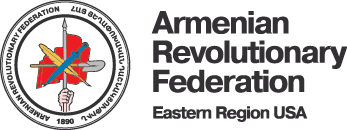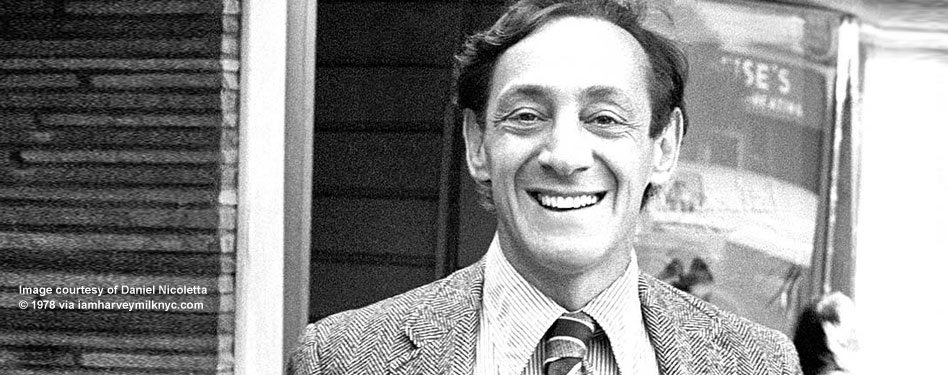‘If You’re Not at the Table, You’re on the Menu’

The title above is what Harvey Milk—the first openly gay elected official; he was assassinated in 1978—used to say, according to his nephew, Stuart Milk. I heard this on Monday and couldn’t help but realize how applicable it was to Armenians.
The parallel I noticed isn’t limited to the fact that a minority was the target of massacre by a lunatic, regardless of what his motivations/triggers were, when a LGBT gathering place became the target in Orlando, Fla. Rather, it was the wisdom embodied in that adage.
In Lebanon during its civil war, we were clearly at the table. This was because we were both politically engaged, fully, up to the time hostilities broke out and we fought to defend our people and communities.
In Syria and Iraq, during the current ISIS/Daesh created (and Turkey + allies supported) mess, we may be in the dining room, or just the house, but we are not at the table. We’re taking a lot of hits, with no real ability to prevent them or respond properly. We are recognized by some parties to the conflict as legitimate stakeholders, but not others. As to the religious fanatics who are the root of all this evil, their destruction of the Der Zor Armenian Church and desecration of the relics from the genocide’s martyrs speaks to where they stand: firmly in cahoots with Turkey.
Iran is an example of being at the table. Despite our miniscule numbers relative to the overall population, and despite the state structure being grounded in Islamic law, we are a formal parliamentary presence, are respected, and have held our own through revolution, war, and international sanctions. Clearly, we are at the table.
The massacres in Sumgait, Baku, Kantsag/Gandsak (Gyanja) clearly showed we were on the menu, in Azerbaijan. In this case, it may well have been impossible to be at the table, unless some very high-up Soviet muckety-muck had been an Armenian who cared about Armenians.
Happily, Artsakh was a different story. Not only were we at the table, but we got there by forcing ourselves into the house, found the dining room, sat at the table, and proceeded to throw out anyone who wanted to put us on the menu.
In Canada, Cyprus, France, Germany, Greece, etc., we seem to be in the dining room, though still a bit hungry since we’re not really at the table. We must build some chairs or get others to bring some into the dining room for us. No fears of being “menued” in these places.
South American countries are an interesting case. We might be at the table, sometimes. It also seems like we are never hungry, being in the dining room with well-stocked plates in our hands. No fears of being “menued” here, either.
Applying this metaphor to Russia is, because of my limited awareness of things Armenian there, subject to Churchill’s description of that country as “a riddle, wrapped in a mystery, inside an enigma.” Armenians sometimes seem to be at the table, other times on the menu, and still other times wandering around the house wondering what room we’re in!
Ironically, perversely, in the U.S., despite our large numbers and opportunities, our situation is not too different than in Russia. Perhaps this is a function of the U.S. being the world’s hyper-power. Imagine, a straight-up, simple genocide recognition resolution has not passed both houses of congress with presidential affirmation of some sort, all at once. We are subject to discrimination and hate crimes in some settings. We have not developed enough sway in political circles to contain Turkey’s and Azerbaijan’s affectations, arrogance, aggression, and attempts to alter reality. We can do better!
The 43rd California Assembly District is the most worrisome example of our dilemma in the U.S. It hosts the densest Armenian population of any such legislative district in the country, so by any rational measure we are/should be at the table. Yet, because of political vagaries and a few extremely cynical political climbers, schemers, and their enablers, our community keeps taking damaging hits. The latest example is but some 10 days old: California’s June 7 election. Ardashes Kassakhian is far and away the most qualified candidate to represent this district based on education, experience, participation, etc. etc. etc. Yet, a vicious assault ($1.5 million-ish in misleading attack ads, mailers, and TV commercials, and support for his main opponent) by a well-funded yet somewhat murky group with ties to Turkish religious groups dragged him from an anticipated first-place finish to second in the top-two primary system. Severe and serious backlash is needed in November. Political actors in the region must learn that they may not resort to acts and plots in pursuit of their electoral-political that impose “collateral damage” (even if unintended) on the Armenian community in the area.
Of course, the genocide is the best example that even if we’re at the table (remember we were in the Ottoman Parliament and in political alliance with other minorities’ representatives and the governing Committee of Union and Progress), we might simultaneously be on the menu because of what’s going on under the table…
We must always be active, alert, and astute so we gain and maintain our seat at all tables of power. Get and stay engaged!
Source: Armenian Weekly Mid-West

